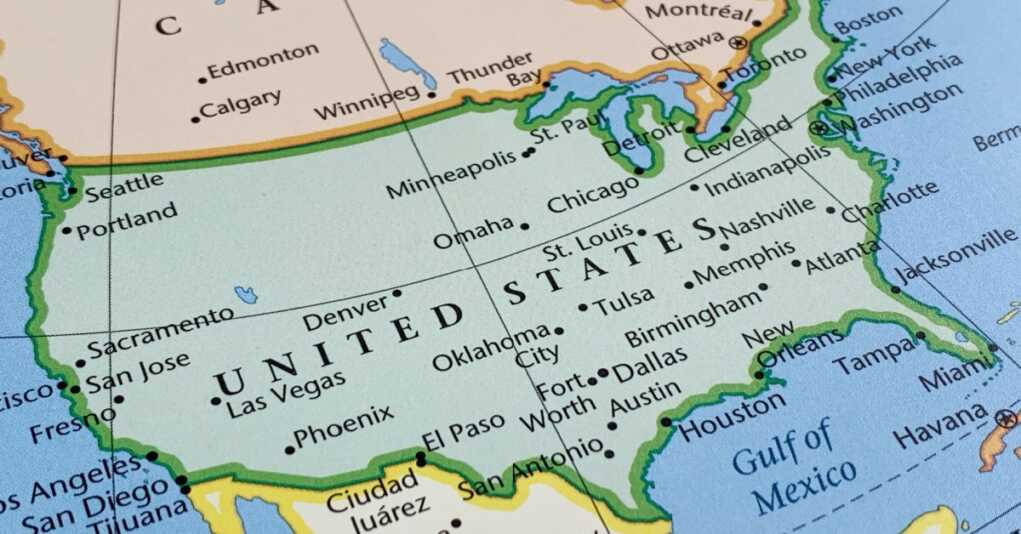North America’s Divorce? Why Mexico Might Be Getting the Cold Shoulder

There’s a storm brewing in North America, and no, it’s not another hurricane spiraling toward the Gulf of Mexico. This one’s political, economic, and cultural all rolled into one messy, bureaucratic package. The chatter among global elites, the ones who like to sip champagne in Davos while plotting how to save the world from its own common sense, suggests that Mexico might just be on the outs with its North American neighbors. That’s right—after decades of NAFTA, USMCA, and countless promises of “closer cooperation,” Mexico could find itself standing in the corner of the continental playground, wondering where it all went wrong.
Now, before we dive into this geopolitical soap opera, let’s clear the air. Mexico isn’t some innocent bystander. Sure, the country’s vibrant culture and hardworking citizens have contributed much to North America, but let’s not sugarcoat things. The southern border has been a sieve for decades, letting in everything from illegal drugs to unvetted migrants, while cartel violence makes the Wild West look like Sunday school. And what has Mexico done to address these issues? Aside from a few grand gestures and photo ops, not much. Meanwhile, their new president, Claudia Sheinbaum, seems more focused on making history as the country’s first female leader than fixing the dumpster fire burning on her watch.
Enter Donald Trump, stage right, with his signature flair for the dramatic. The man knows how to make a point, doesn’t he? His recent threats of a 25% tariff on Mexican goods have sent shockwaves through the markets, with investors clutching their pearls and liberal economists predicting doom. But here’s the thing: Trump’s move isn’t just a random act of tariff terrorism. It’s a wake-up call—a blaring alarm clock ringing across North America, saying, “Hey, Mexico, it’s time to get your house in order.” And let’s be honest, it’s about time someone said it.
But tariffs aren’t the only thing putting Mexico in hot water. Canada, our polite but passive-aggressive neighbor to the north, is eyeing Mexico with a mix of suspicion and quiet disdain. Sure, they’ll never say it out loud; that’s not the Canadian way. But make no mistake, Justin Trudeau’s government isn’t exactly thrilled with Mexico’s track record on labor rights or its inability to curb environmental abuses. For a leader who thinks plastic straws are the devil’s invention, Mexico’s lax enforcement of climate pledges is probably giving him hives.
So, what happens if Mexico gets the cold shoulder? For starters, it could spell economic disaster south of the border. Mexico’s economy is deeply intertwined with the U.S. and Canada, from auto manufacturing to agriculture. If those ties fray—or worse, snap—it won’t just hurt Mexican businesses; it’ll destabilize the entire region. And while liberals might clutch their pearls and scream about “humanitarian crises,” the reality is, a destabilized Mexico means more chaos at our southern border. More migrants, more drugs, more violence. Sound like fun?
But wait, there’s more! Mexico’s exclusion from North America’s inner circle could have far-reaching geopolitical consequences. China, always lurking in the shadows, would love nothing more than to swoop in and fill the void. Imagine the headlines: “China Builds Mega Ports in Mexico; Xi Jinping Tours Cancun.” It’s not just a nightmare scenario—it’s a strategic disaster for the U.S. Keeping Mexico in the fold isn’t just about economics; it’s about maintaining a secure and stable Western Hemisphere. And that, my friends, is something worth fighting for.
So, where do we go from here? The solution isn’t as simple as slapping on a tariff and calling it a day, though Trump’s approach is a solid first step. Mexico needs to step up—big time. That means cracking down on corruption, securing its borders, and actually enforcing its own laws. It also means taking a hard look at its economic policies and figuring out how to play ball with its North American partners. And yes, it means Claudia Sheinbaum putting down the history books and picking up a plan for real reform.
The ball is in Mexico’s court, but the clock is ticking. If they can’t—or won’t—rise to the occasion, they might find themselves on the outside looking in. And for a country that depends so heavily on its northern neighbors, that’s not just a bad look; it’s a catastrophic failure.

